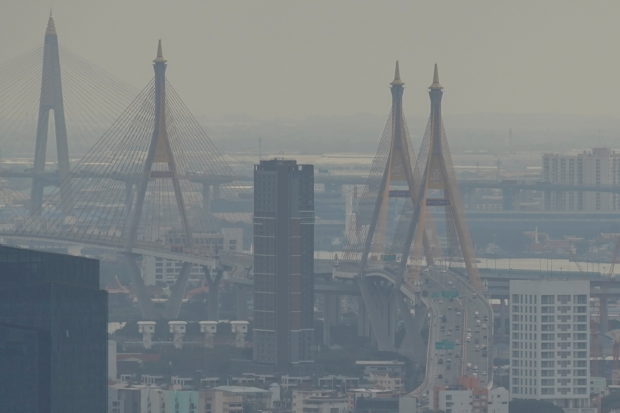
Buildings are shrouded in haze in Bangkok, Thailand December 15, 2020. REUTERS/Athit Perawongmetha
BANGKOK — Bangkok on Tuesday introduced measures to tackle rising pollution, as concentrations of microparticles hit unhealthy levels in several parts of the Thai capital, shrouding high-rise buildings in a murky haze.
Air quality in the city of around 10 million people has deteriorated markedly in recent days, and authorities said large construction projects had been asked to halt and checkpoints were being set up to test vehicle emissions.
“It affects my daily life because every time I walk outside, my nose and neck feel irritated and when I cough, people get suspicious about whether I have COVID or not,” said Bangkok resident Sarunya Poungsumdee.
The global Air Quality Index’s level rose above the 151 threshold into the unhealthy category across the city on Sunday, data from monitor AirVisual showed.
While the pollution has eased slightly since, concentrations of PM 2.5 – tiny particles found in dust, soot, and smoke that can lodge deep in the lungs and enter the bloodstream – remained at unhealthy levels in 13 districts of Bangkok on Tuesday, the city’s Air and Noise Pollution Management office said.
“My concern has just doubled,” said another resident, Pasarawadee Tankanit, in reference to the pollution spike on top of the risk of catching the coronavirus, adding that residents could not simply afford to rely on the government.
Bangkok city spokesman Pongsakorn Kwanmuang on Tuesday also ordered schools to suspend outdoor activities and to close if they lacked sufficient air filtering, while a defense ministry spokesman said authorities would monitor factories.